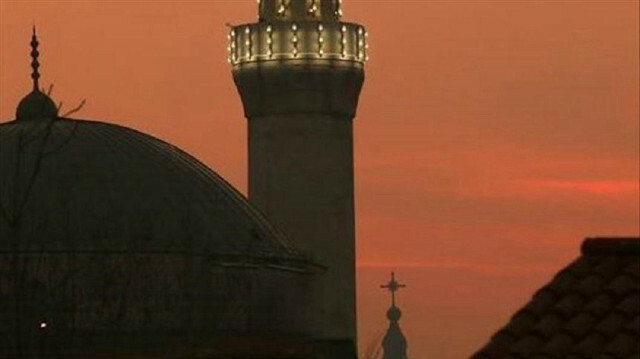
Despite approval, mosque construction scuttled by some non-Muslim community members in southeastern Daegu city
Miffed by inaction by local authorities to implement court orders, a human rights group in South Korea has appealed to the UN to help construct a mosque for the Muslim community.
The appeal comes after local residents in the southeastern city of Daegu blocked the construction of the mosque near Kyungpook National University. The permission to build the two-story mosque was granted in 2020 and the site was earlier used as a prayer center.
A local human rights group on Monday appealed to the UN special rapporteur on religious freedom to urge South Korea’s central and local governments to “intervene to stop the residents’ obstruction of the construction work and remove the pig heads immediately.”
The task force for peaceful resolution of the mosque issued the appeal as authorities did not pay any heed to the demand of the Muslim community to remove the pig heads from the alley which is used by those visiting the mosque construction site for routine prayers.
The petition to the UN official urges the South Korean government and local authorities to “publicly condemn all forms of discrimination based on a particular religion or race, conduct education on the duty of religious neutrality and anti-racism for all public officials of Daegu City, and remedy all damage.”
Those opposing the construction have “physically” blocked access to the site, put up banners, threw pork barbecue parties, and displayed pig heads near the construction site.
Despite court orders to go ahead with the construction, the local Muslim community has been unable to complete the construction as some non-Muslim locals have hindered the process.
“We’ll fight against the mosque construction till our last breath,” read one banner displayed next to the site.
Condemning the act as Islamophobic, Mian Muaz Razaq, a Muslim students’ representative at the university, told the daily South China Morning Post: “They held rallies against Islam, they called us terrorists, they hung banners against our religion, they distributed hate pamphlets against Muslims in our area, what can these acts be called? This is pure Islamophobia.”
According to the report, the local officials have shown helplessness, saying: “They had no power to clear the pig heads without approval from residents as they were useful items bought by private citizens.”
South Korea has no state religion.
Among around 52 million people, 28% of South Koreans said they are Christian in a census conducted in 2015. Other 15.5% said they are Buddhist.
According to Korea Muslim Federation, Muslims in the country constitute a meager 0.4% or around 200,000.
Hello, the comments you share on our site are a valuable resource for other users. Please respect other users and different opinions. Do not use rude, offensive, derogatory, or discriminatory language.
The floor is all yours.








